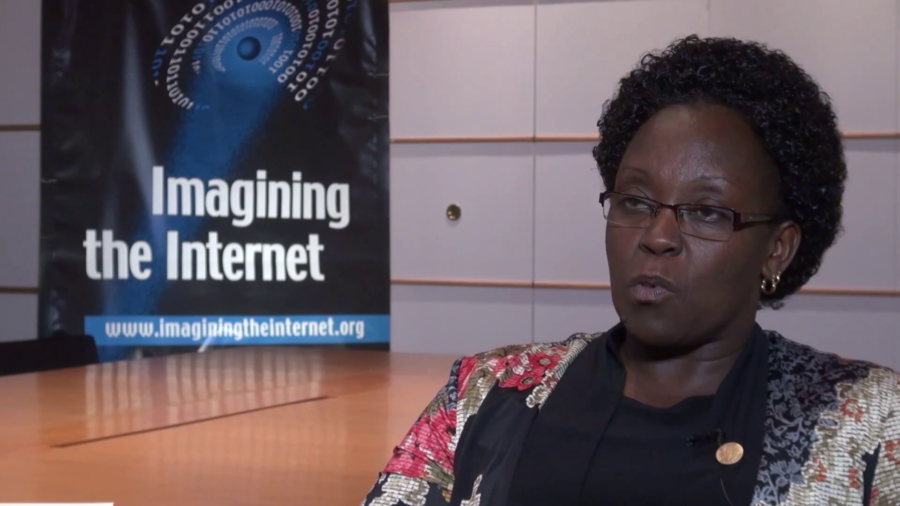Irene Misoi: I’m representing Dorcas Muthoni, one of the inductees who could not to come. She just had a baby about a month ago, so she was not able to travel.
One thing that I guess has contributed to Dorcas being selected as an inductee is trying to get many more women to get into careers in computing by building capacity in Africa. And this she did by starting an organization called AfChix Africa that has got chapters in more than twenty-two countries. And what happens is we train women in IT, especially system administration in Linux. And that means developing capacity for the Internet, especially in women. There are very few women who are in IT, especially in Africa. And that prompted Dorcas to start the organization AfChix, which now has helped enhance and build capacity for and encourage more women to get into IT.
Intertitle: Describe one of the breakthrough moments of the Internet in which you have been a key participant?
Misoi: This has happened through the various trainings that we have given to the women. Training them in Linux system administration. You know, Linux is one of the open source operating systems that a lot of organizations use to run the services that of course run the Internet. And we’ve created capacity for various countries, the African countries especially, by training more and more women. We’ve carried out trainings in Senegal, Dakar, and a lot of the participants are coming from the universities. Either final-year students or third-year students that are finishing and therefore getting out into the job market. And of course with Linux system administration skills, we’ve impacted some knowledge into them that they can be able to run networks in various organizations.
Intertitle: Describe the state of the Internet today with a weather analogy and explain why.
Misoi: The future of the Internet I can say is bright. And this has brought together a lot of people. And especially looking at Africa, it’s reaching people and helping get solutions to problems. And especially in medicine or in health, e‑health, there are some remote areas that people do not want to go and work in because of the remoteness. And some of these, the Internet has that made it possible for doctors wherever they are to be able to administer through some of these apps on e‑health, and famine also, and so many other areas. So I can say the Internet has a bright future.
Intertitle: What are your greatest hopes and fears for the future of the Internet?
Misoi: My greatest concerns, especially currently, are security on the Internet. And especially for the younger children. There’s so much on the Internet, and probably trying to control it maybe is not good. And there is of course a lot that is good. Controlling it for the smaller or the younger children I think is a major concern. But I know sooner or later, I believe there could be solutions that could aid in maving saving or you know, protection, to maybe accessing material that is not good for some of our generations.
I’ll say that the hopes for the future of Internet, I hope that we’ll be able to be control the content that is being put on the Internet. This is especially for consumption, for the various age groups. Because currently I think even the small children can be able to access some of the information that is probably not good for their consumption.
And I also hope that—speaking about Africa especially—there are some areas that connectivity has not gotten into. So we hope that organizations like Internet Society and others concerned, and our governments of course, will be able to organize to build infrastructure in some of these areas that do not have connectivity. Because that’s a challenge, and looking at what the Internet can do, I believe people should have the connection so that a lot of these other things, other benefits, that come with the Internet, they’ll be able to harvest from it.
Intertitle: What action should be taken to ensure the best possible future?
Misoi: I think the actions that can be taken to make the Internet better are…one, I think the security bit of it, I think we need to do a little more of the security aspects. Because there are a lot of cybersecurity concerns that are coming up currently. But I believe the engineers will come up with solutions that will be able to solve some of these problems. I know of forums that are currently doing a lot of ongoing work that are helping come up with solutions to be able to resolve some of the cybercrime issues that we have.
